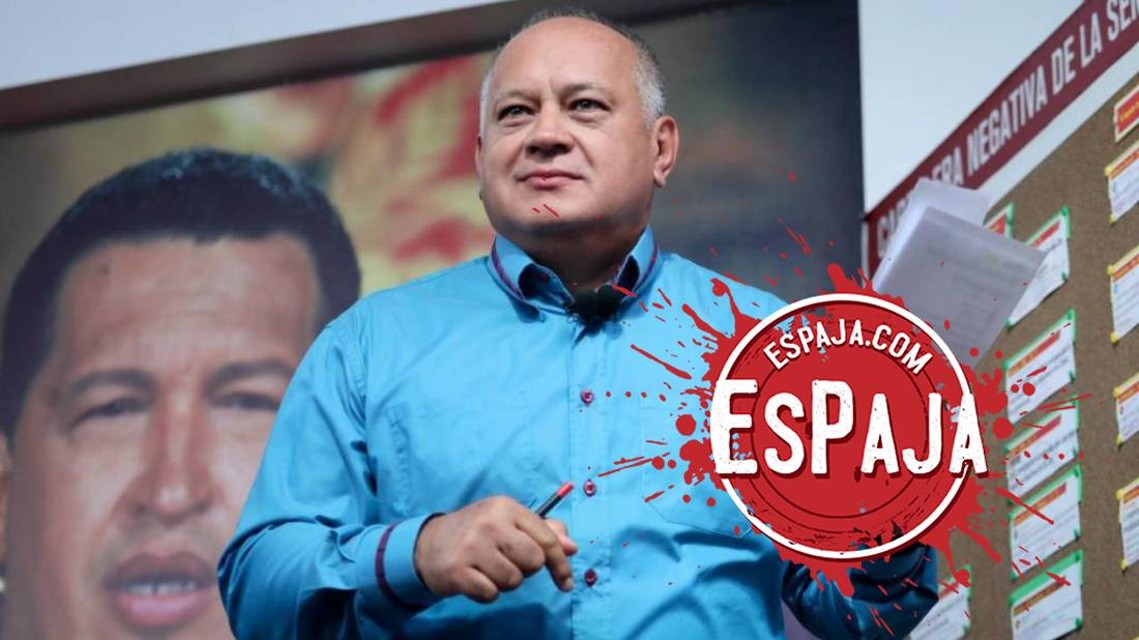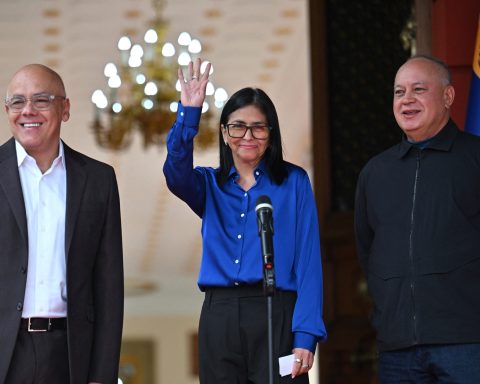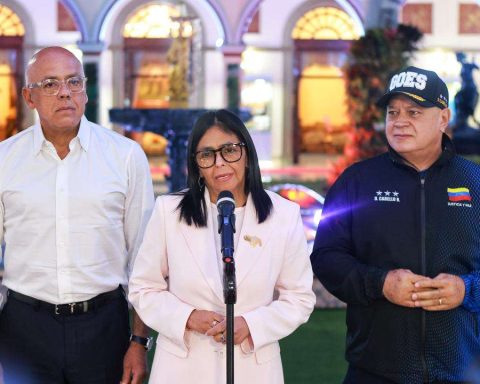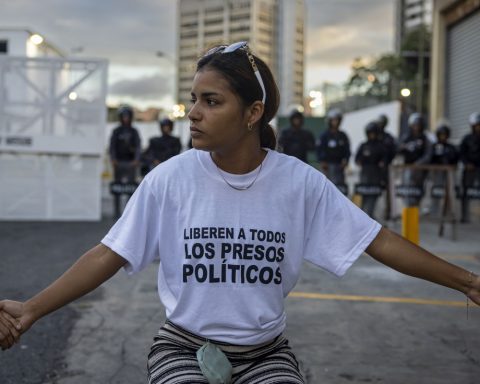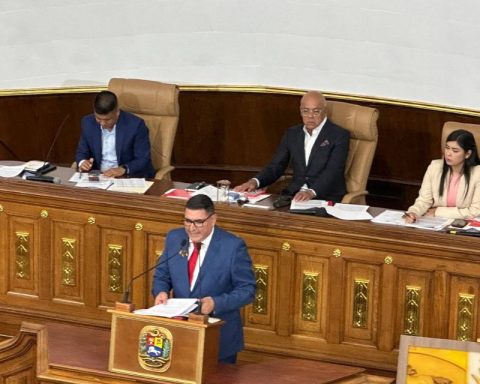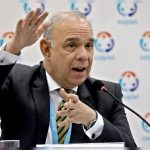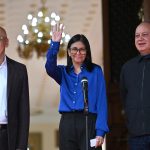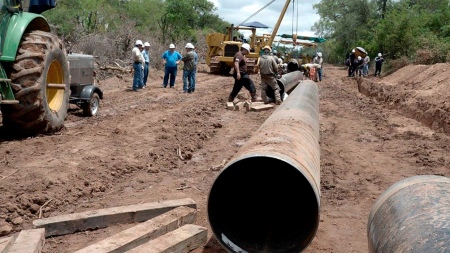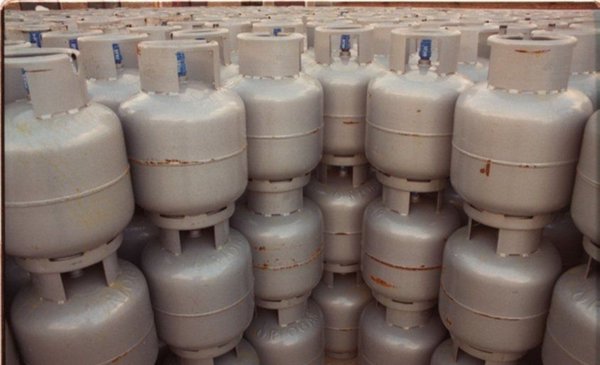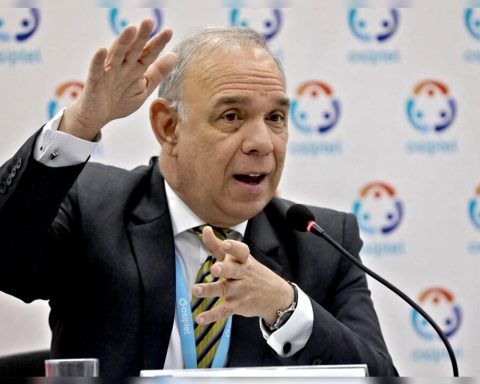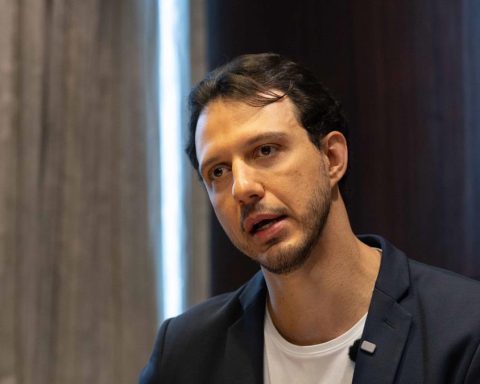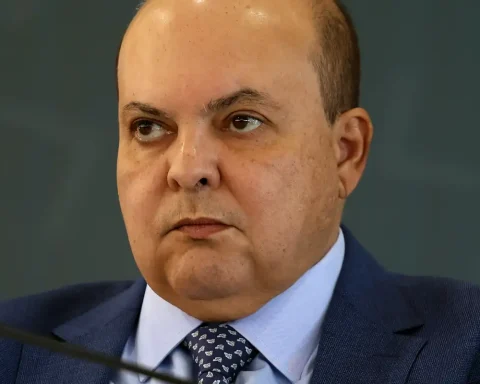The words “transparency” and “transparent” do not characterize Chavismo. The most recent report from Transparency International indicates that Venezuela is ranked 177 out of 180 countries, with 180 being the worst rated. The same report shows that, since 2017, Venezuela has registered a continuous decrease in the Corruption Perception Index and a 2022 EsPaja investigation calculated government opacity at 64% in the last 12 years.
Text: Valentina Gil
After the signing of the agreement signed between the government of Nicolás Maduro and the Unitary Platform in Mexico, Diosdado Cabello, first vice president of the United Socialist Party of Venezuela (PSUV), showed his support for the measure. However, he warned that while the UN will manage the frozen resources of the Social Care Fund, the national government will decide the projects.
“That does not matter to us as long as it reaches our people (…) We do not have any problem. That money belongs to Venezuelans and should be used for Venezuelans. What is the UN? We don’t care, we are transparent, ”she asserted.
But what Diosdado can say is one thing and the data from Transparency International in its 2021 Corruption Perception Report, which evaluates the perception of corruption in almost 200 countries around the world, including Venezuela, is another.
According to the index of that international organization, Venezuela is ranked 177 out of 180 steps, only ahead of Somalia, Syria and South Sudan, understanding number one as the least corrupt and number 180 as the most corrupt.
*Read also: Venezuela is the fourth most corrupt country in the world, according to Transparency International
«Since 2017, Venezuela has registered a continuous decrease in the Corruption Perception Index (CPI). Of the 18 points it obtained that year, by 2021 the country barely reached a score of 14, on a scale of 100, where 0 is the worst performance or the highest perception of corruption. Venezuela only fared better than Somalia (13), Syria (13) and South Sudan (11), the lowest scores among the countries evaluated. At the same time, Venezuela is the state perceived as the most corrupt in America, for the eighth consecutive time,” says the Transparency Venezuela page, after the publication of the Corruption Perception Index.
In the investigation “Opacity in Venezuela, a way of governing”, EsPaja.com found that 64.22% of the 47 official documents included in the study, which should have been published between 2010 and 2022, were not disseminated. Of the data studied, only 29.95% has been published and was presented at the appropriate time.
Public institutions are obliged to provide information to citizens, in accordance with Articles 28 and 58 of the National Constitution, which guarantee the right to access timely, truthful and impartial information. However, the word “transparency” does not characterize Chavismo.
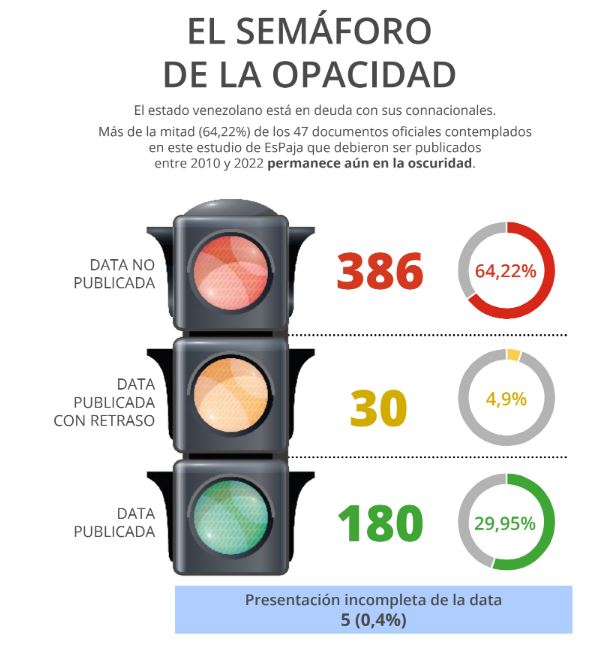
In the midst of the complex humanitarian crisis that Venezuela is experiencing, the Maduro government has chosen not to publish information on public debt, spending, the health situation, mortality rates, numbers of violent deaths, forced migrations and other key indicators of the crisis.
For example, since 2017, the Executive decided not to publish the National Budget and until 2021 decided to present it to bodies other than the National Assembly (AN) for approval. To fill the information gap, between 2017 and 2019, Transparencia Venezuela built the Citizen Budgets based on unofficial information to which it had access and complementing it with the compilation of budget modifications published in Official Gazettes. For 2020 and 2021, the opacity of the government was even greater, because a large number of Official Gazettes containing budget modifications stopped being published.
According to the EsPaja.com investigation, when the opposition obtained the majority of the AN in 2015, the accountability of the central bodies disappeared, which was already scarce. Only five institutions published their Reports and Accounts for the year 2015: Ministry of Popular Power for Ecosocialism and Water, Ministry of Popular Power for Indigenous Peoples, Ministry of Popular Power for the Social Work Process, Ombudsman’s Office, and Supreme Court of Justice. .
*Read also: Maduro says he will take “measures” against the “criminal dollar attack”
In addition, of the 33 ministries that the country has in 2022, only three have the documents available on their web pages: the Ministry for the Social Process of Labor, the Ministry of Planning and the Ministry of Ecosocialism, the latter being the most “up-to-date”. with a document from 2017. And although Chavismo returned to be a majority in the AN in 2020, the Memory and Account corresponding to 2021 and 2022 are also a mystery. It is not possible to consult them on the web portals of the ministries and civil organizations do not have access to the documents either.
In economic matters, the Central Bank of Venezuela has not published figures on a regular basis since 2013, when it stopped reporting the Employee Compensation Index (IRE). Also that year, the scarcity indicator and the product diversity index were no longer published, just as the variation in the prices of goods and services was no longer published in a regular manner.
regular.
On the other hand, both journalists and analysts and businessmen are forced to use OPEC figures to know the volume of oil production in Venezuela, since the last management report of Petróleos de Venezuela (PDVSA) was presented in 2016, under the presidency of Eulogio Del Pino. The last financial report of the state oil company also corresponds to that year.
Civil society organizations in the health area should also resort to data published by international institutions and third-party studies, even partial, to find out the country’s state of health. The last Mortality Yearbook published by the Ministry of Health is that of 2016, the year in which the Epidemiological Bulletin also ceased to be published. It is worth noting that the document arrived late, because it was published in January 2021. Despite the fact that the press has made requests for information, the ministry receives them, signs and seals them, the process does not go beyond that.
Post Views: 513
